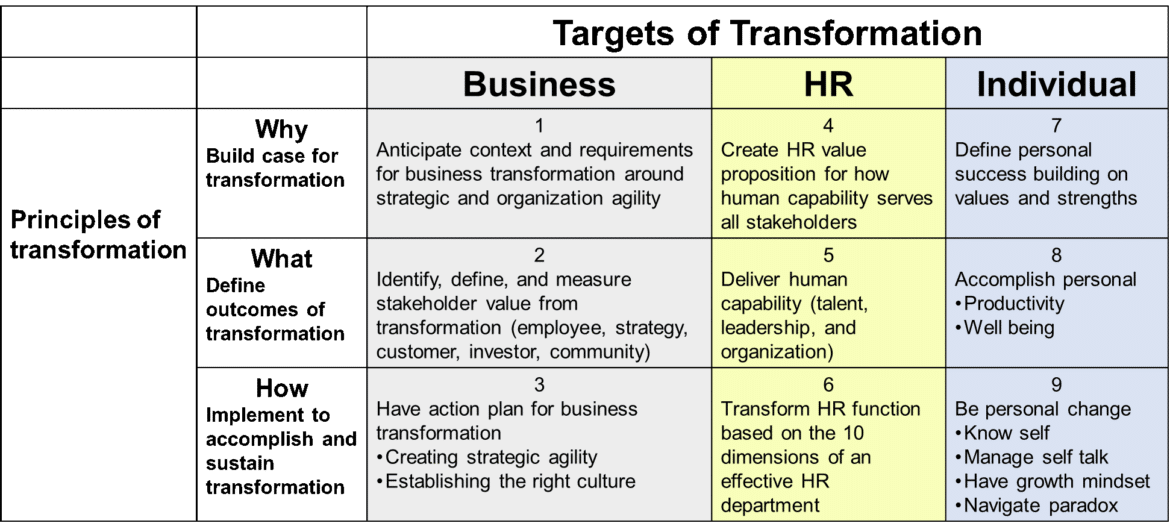
WHY SHOULD YOU CARE?
In an age of disruption, conventional HR approaches fall short. Enter Dave Ulrich’s paradigm-shifting strategies. This article deciphers Ulrich’s multi-stakeholder blueprint, guiding HR leaders through a transformative journey. Explore principles that redefine HR’s impact, from collective synergy to perpetual patterns. Gain the tools to orchestrate change that resonates across your organization’s diverse dimensions.
In today’s ever-evolving business landscape, where change is not merely an option but a necessity, the concept of transformation has taken center stage. Be it agility, reinvention, renewal, disruption, or change, the call to respond to shifting dynamics is universal. In this pursuit, the distinguished voice of Dave Ulrich, a professor at the University of Michigan and a recognized thought leader and the father of modern HR, provides a strategic compass.
Ulrich introduces a holistic framework for navigating HR transformation, one that looks beyond the surface and dives deep into the core of organizational change. At its heart lie three pivotal stakeholders: the organization itself, the HR function, and the individual. Each stakeholder holds the key to transformation, and unlocking its potential necessitates an understanding of three core principles: why transformation is imperative, what it entails, and how to execute it effectively.
From these principles emerges a nine-box transformation roadmap, offering a comprehensive guide for orchestrating change within the HR domain. This roadmap, akin to a treasure map for HR professionals, empowers them with both the macroscopic perspective required for driving transformation at an organizational level and the microscopic insight to effect change within individuals.

The essence of Ulrich’s way of thinking can be summed up as “HR isn’t just about HR; it’s about the business.” This idea means that HR isn’t separate from the business – it’s a part of it. This way of thinking is important because it shows that HR has a bigger impact than just individual skills. It’s like a call to change how we see things. It shows that different parts of HR work together and make the organization better.s.
Anchoring this philosophy is the HR Competence & Capability Study (HRC2S), a pivotal instrument designed to illuminate the path toward effective HR transformation. Within its construct are three fundamental inquiries that delve into the heart of HR’s role in fostering change:
- What competencies do HR professionals require to drive results?
- What defines the characteristics of an impactful HR department, and how do individual competencies contribute to its efficacy?
- How can HR contribute to the development of business capabilities that drive results, and which individual competencies underpin these capabilities?
Ulrich’s insights highlight a significant paradigm shift—one that propels the HR function beyond its conventional individual-centered approach, instead adopting a comprehensive perspective that encompasses the intricate organizational fabric. This strategic pivot goes beyond isolated practices, advocating for the promotion of synergistic patterns and interconnected HR systems. Termed high-performance work systems, this integration marks a departure from fragmented historical strategies.
Equally pivotal is the shift from occasional HR events to a comprehensive understanding of how these events coalesce into a seamless continuum of activities. This shift fundamentally reshapes HR’s role, transitioning it from a temporal orchestrator to a continuous composer. This metamorphosis crafts cohesive rhythms that resonate harmoniously across the organizational landscape.
Furthermore, Ulrich advocates the paramount importance of acknowledging stakeholders beyond conventional boundaries. While employees and line managers are undeniably vital, they represent just a fraction of a broader stakeholder spectrum, which spans beyond the dimensions of the organization, like customers, investors, and communities. Embracing this panoramic view empowers HR to drive transformation that echoes across diverse realms, enhancing its overall effectiveness.
Dave Ulrich’s outlined principles for transforming HR emerge as a clear roadmap, guiding how to bring about changes that go beyond just surface-level tweaks. This roadmap encourages a big shift in how we think, urging us to move beyond focusing only on individual skills and instead embrace the combined power of all parts of HR. This idea resonates with the idea of bringing different HR practices together into complete solutions and moving from one-time events to lasting patterns. Following this comprehensive approach doesn’t just make HR more effective but also unlocks the real potential for the organization to evolve and grow.
In a world of constant change, it’s the businesses that pay attention to this call for transformation that will make real progress, strengthened by the wise insight of Ulrich’s holistic vision. HR’s New Horizon to Rise: Reimagining Human Capability, promising a future where HR leads the charge towards organizational excellence.
Join Dave Ulrich LIVE at the HORIZON SUMMIT in Amsterdam on 14-15 November 2023

Written by: Mihaly Nagy
Future of Work HR Strategy HR Transformation Strategy & Transformation
Previous post

- 79
labelArticles today2023.08.02.
Ruled by Algorithms: Keiichi Matsuda’s ‘Merger’ Sheds Grim Light on the Future of Work
WHY SHOULD YOU CARE? Delve into the compelling world of technology and its profound impact on our work and lives through the thought-provoking lens of Keiichi Matsuda’s latest short film, [...]
Similar posts

labelArticles today2024.07.24.
AI-Powered HR: Strategic Benefits and Practical Applications

labelArticles today2024.06.24.









Post comments (0)